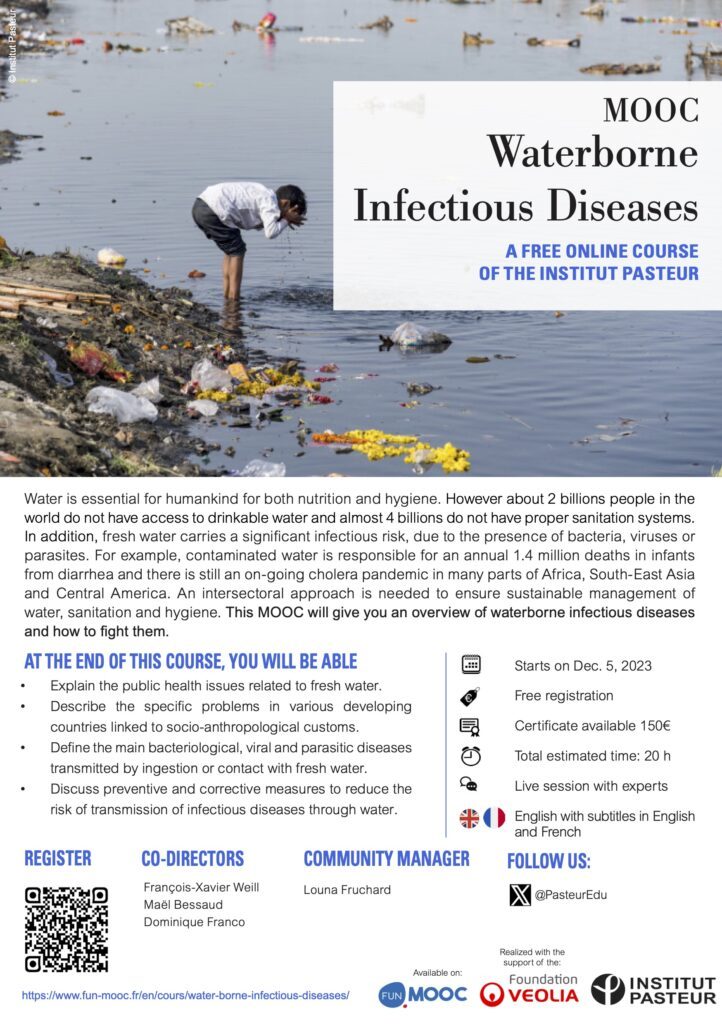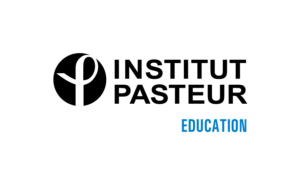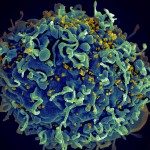This MOOC explains why water can transmit bacterial, viral and parasitic infections and explores means of control and prevention.
Register on: https://www.fun-mooc.fr/en/cours/water-borne-infectious-diseases/
Enrollment: From Oct.5, 2023 to Feb. 7, 2024
Course: From Dec.5, 2023 to Feb. 14, 2024
Languages: The videos are in English, with English and French subtitles.

Developing countries, do not have access to safe drinking water or adequate sanitation and are at risk of potentially severe infectious diseases linked to the presence in water from bacteria, viruses, or parasites. This explains, for example, the death by acute diarrhea of 1.4 million children each year and how, in the 21st century, a cholera pandemic persists in some continents.
This MOOC explains how water is polluted by microbes, indicates some regional, sometimes socio-anthropological, peculiarities that favor water pollution, and describes the most common infectious diseases transmitted by ingestion or contact with water.
The MOOC develops why making water consumable and ensuring satisfactory sanitary conditions is an “intersectoral” work bringing together health actors, politicians and engineers as the GTFCC (Global task force for cholera control). Ensuring the availability and sustainable management of water and sanitation for all is one of WHO’s 17 goals for the coming years (https://www.who.int/health-topics/sustainable-development-goals#tab=tab_3).
This MOOC is part of the Online Diploma of infectious Diseases of the Institut Pasteur DNM2IP.
More courses on: https://www.fun-mooc.fr/en/etablissements/institut-pasteur/ 






